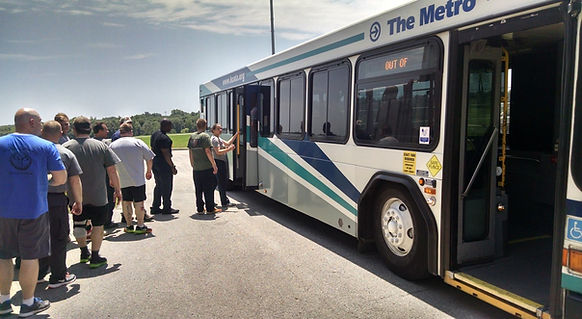Close Quarters Control Tactics





Close Quarters Control Tactics
This is a Principle Based Class and not a list of specific techniques. This is an advanced course for instructors. This class focuses on using small joint manipulation- specifically wristlocks to control a subject in close quarters.
The Close Quarters Control Tactics course was developed to enhance your options to control subjects within various types of confined spaces. This 8-hour course focuses on effective and dynamic control tactics to ensure officers’ success and safety during subject control and escort. The course also focuses on blocks, takedowns, and restraints – tactics which conclude with a handcuffed subject every time. Practical applications during training will be conducted in confined spaces.
Bus - Train - Plane - Jail Cell - Confined Living Quarters - Taverns/Bars
As a person attempting to control a subject in a constrained environment, you must heighten your understanding of joint manipulations and the way the human body naturally reacts to pressure. This course goes beyond the fundamental understanding of human anatomy and kinesiology to teach the directional attacks when you cannot rely on help from other members of your agency due to the logistics of the environment. Each joint has limitations and manners in which they can be exploited to get the subject moving the direction needed in the limited environment as well as to elicit the final outcome which may be arrest or just removal from a crowded bar or festival.
Build the Bear
No two CQCT courses are the same. The courses are designed so that students gain a higher level of understanding of manipulating the human body and then use that knowledge in an environment of their making.
First, students build up the understanding of PRINCIPLES related to the body and work in pairs to attain that knowledge.
Second, students build ENVIRONMENTS out of mats, cones and other objects to construct every day situations their agency commonly find themselves in. (bus, train, jail cell, kitchen, living room, et cetera).
Third, students begin working in groups to deal with the environment in a more than one on one situation. (2 officers against 1 subject.)
Fourth, students share their environments with other students for the each member to get a different perception and share experience.
Police - Security - Corrections - Jailers - Bouncers - Door Staff - Service Industry


8-Hour Instructors Course
Prerequisite: Core Essentials OR Approval of NLETC with comparable training.*
* Note: Core Essentials is recommended as it has instructor development aspects to it as well as fundamental 'core' techniques, stances and other aspects that are within every single NLETC course. For course cohesion, understanding things such as power stance, force efficiency and other concepts which are taught in Core Essentials allows us to decrease instructor certification times within other courses. Should instructors wish to not take Core Essentials and take other elective courses such as Handgun Long Gun Retention and Disarming, the course may need to be longer than the standard 8-hour course. A Training Board Member will need to handle these on a case by case basis.
